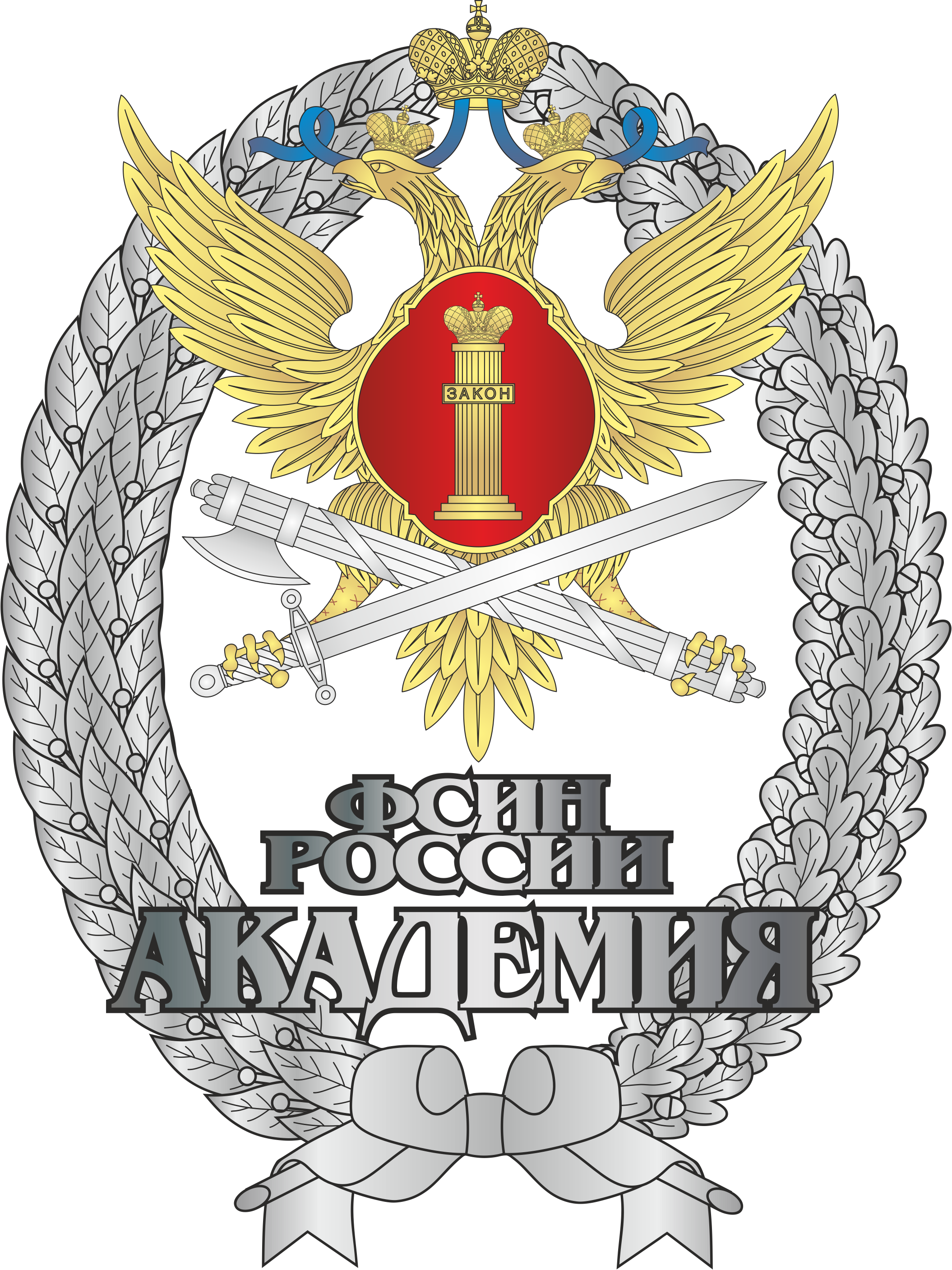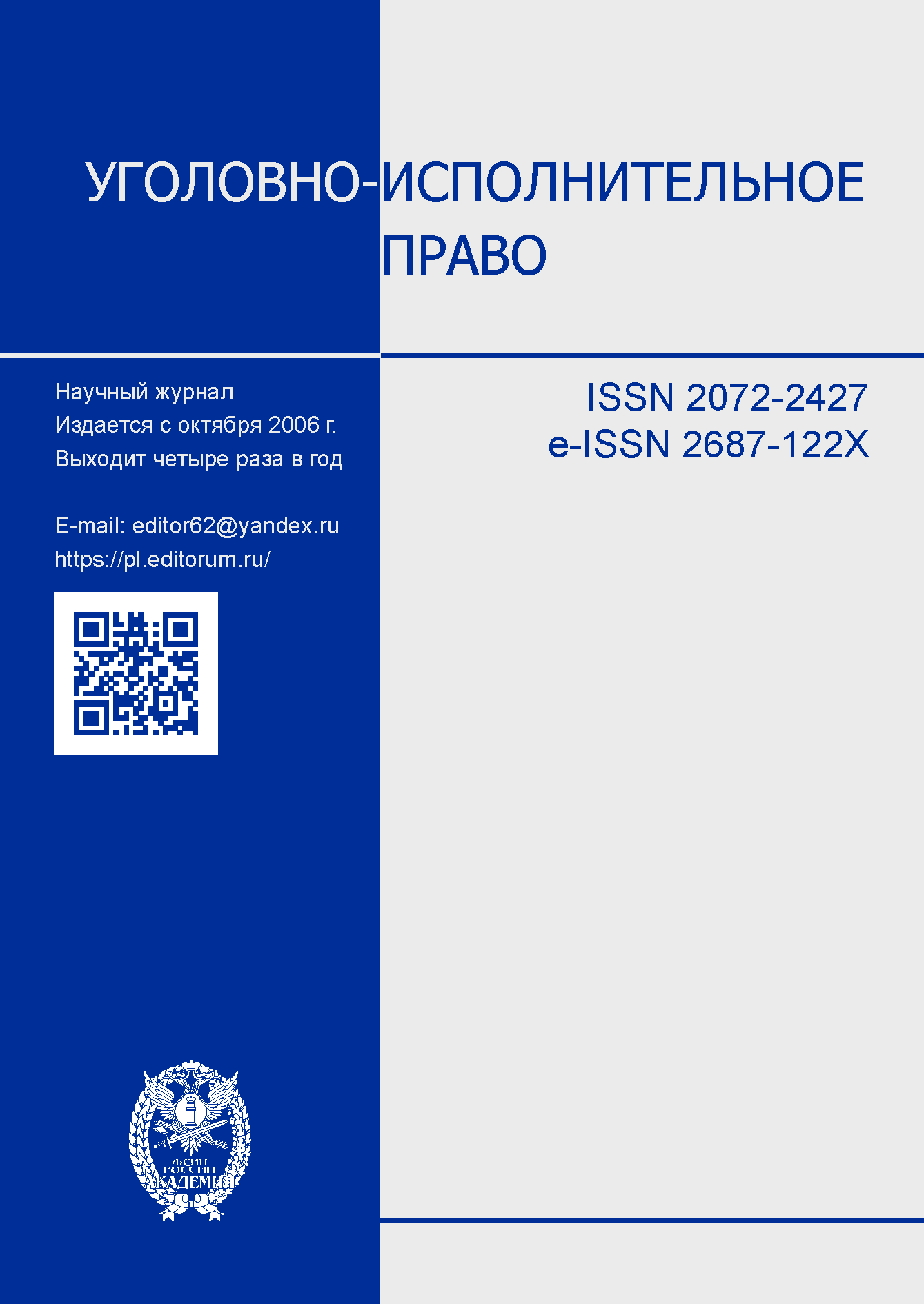Russian Federation
Russian Federation
UDC 343.847
Taking into account the analysis of the provisions of the Criminal Procedure Code of the Russian Federation and other regulatory legal acts, as well as law enforcement activities, the article identifies a number of problems in the field of control by employees of criminal inspections over compliance with the prohibition by suspects (accused) to send and receive postal and telegraphic items. In order to increase the effectiveness of such control, the need is justified to supplement the Penal Code of the Russian Federation with Article 18.2 with the expansion of the tasks of operational investigative activities in the penal system (for example, assistance in organizing control over prohibitions against suspects, accused with preventive measures in the form of house arrest, prohibition of certain actions and bail) and appropriate grounds for conducting operational investigative measures (in particular, the presence of a resolution on the election of preventive measures in the form of detention, house arrest, prohibition of certain actions and bail).
preventive measure, suspect, accused, prohibition of certain actions, postal and telegraphic shipments, criminal inspections
1. Smirnova, I. N., Budanova, L. Ju. & Shabanov, V. B. 2020, ‘Organizational and legal support of law activities of penal inspections in the field of execution of preventive measures’, Man: crime and punishment, vol. 28, iss. 2, pp. 231–236. DOI: https://doi.org/10.33463/1999-9917.2020.28(1-4).2.231-236; EDN: https://elibrary.ru/YKVGGQ
2. Fetishheva, L. M. 2020, ‘Legal regulation of the powers of employees of penal inspections in the implementation of a preventive measure in the form of house arrest’, Bulletin of the Volga Institute of Management, vol. 20, iss. 6, pp. 62–70. DOI: https://doi.org/10.22394/1682-2358-2020-6-62-70; EDN: https://elibrary.ru/PUBXUW
3. Shamsunov, S. H. & Lakina, I. A. 2019, ‘Modern preventive measures in the activities of penal inspections’, Man: crime and punishment, vol. 27, iss. 1, pp. 71–75. DOI: https://doi.org/10.33463/1999-9917.2019.27(1-4).1.071-075; EDN: https://elibrary.ru/ZEICUH
4. Gir’ko, S. I. & Skudareva, N. I. 2018, ‘The strategy of restoring criminal procedural powers to penitentiary institutions as a modern vector of development of the penal system of the Russian Federation’, Man: crime and punishment, vol. 26, iss. 4, pp. 390–395. EDN: https://elibrary.ru/YTHEHZ
5. Nikoljuk, V. V. 2023, ‘On the issue of the Correlation of criminal procedure and penal legislation’, Journal of Russian Law, vol. 27, iss. 10, pp. 99–115. DOI: https://doi.org/10.61205/jrp.2023.118; EDN: https://elibrary.ru/AZUXKW
6. Skiba, A. P. 2017, ‘On the issue of the differentiation of criminal law, penal and criminal procedure regulation’, Bulletin of the O. E. Kutafin University (MGUA), iss. 7(35), pp. 69–76. DOI: https://doi.org/10.17803/2311-5998.2017.35.7.069-076; EDN: https://elibrary.ru/ZGFLFR
7. Ermasov, E. V., Burmakin, G. A. & Gabaraev, A. Sh. 2016, ‘Issues of improvement and practice of implementing a preventive measure in the form of house arrest in the activities of the penal inspections of the FPS of Russia’, Criminal Law, iss. 1, pp. 130–137. EDN: https://elibrary.ru/VSEZVZ
8. Kolpakova, L. A. 2021, ‘Some procedural issues of the execution of preventive measures in the form of a ban on certain actions, house arrest and bail in the activities of penal inspections’, Penitentiary Science, vol. 15, iss. 1(53), pp. 62–73. DOI: https://doi.org/10.46741/2686-9754-2021-15-1-62-73; EDN: https://elibrary.ru/WQRECP
9. Korostyljova, O. V. 2020, ‘Legal and organizational bases for the execution of preventive measures by penal inspections’, Bulletin of the Kuzbass Institute, iss. 3(44), pp. 42–51. EDN: https://elibrary.ru/EWBCWI
10. Ovsjannikov, I. V. & Efremova, N. K. 2018, ‘Problems of the use of digital controls by the penal inspectorate in relation to persons who have chosen a preventive measure’, Interaction of government, business and society in the development of the digital economy: collection of materials of the XI International Scientific and Practical Conference, pp. 91–95, Saratov. EDN: https://elibrary.ru/YQCSEX
11. Chernysheva, D. V. 2013, ‘Control of penal inspections over suspects or accused persons in respect of whom the court has chosen a preventive measure in the form of house arrest: problems and ways to solve them’, Penal law, iss. 1(15), pp. 40–43. EDN: https://elibrary.ru/QZLZWP











